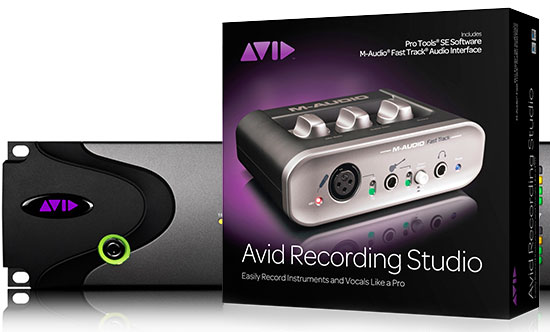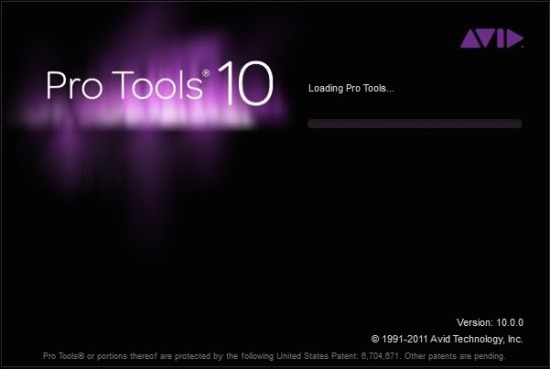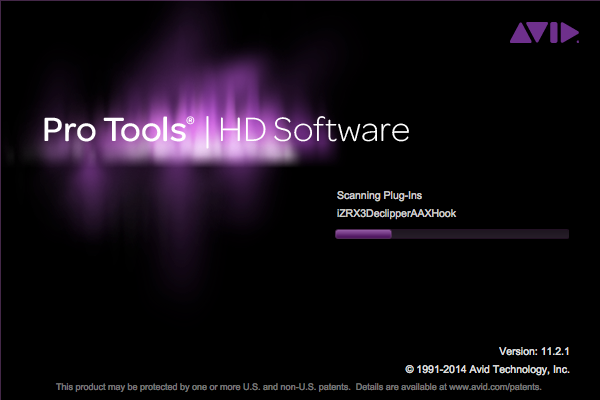Will Avid Continue To Make Audio Interfaces Or Just Concentrate On Software?

With the recent announcement of Avid badging up Apogee interfaces and bundling them with Pro Tools instead of producing their own hardware, it does leave several questions. One of course is will Avid continue to make interfaces or just concentrate on software and services? Let’s consider what we know so far.
Avid Haven’t Made A High Quality Audio Interface For Several Years
The Avid third generation Mbox Family products (Mbox Mini, Mbox, Mbox Pro) were announced on September 14, 2010. In October 2011 the new HDX hardware was announced. There have been smaller consumer style interfaces such as the Fast Track Duo. It has been a highly contentious issues that there has never been a replacement for the hugely popular 003 series of audio interfaces released in 2007, but with a minor update in 2008 with the announcement of the 003 Rack+. With products like the UA Apollo it now makes the possibility of that unlikely.
One thing to appreciate is that R&D and product development can take years, so we may still see products yet to be completed, but that does not mean there is current ongoing development of future replacements for their current audio interfaces.
Many Third Party Interfaces Are Better Value For Money
When you compare the Avid interfaces to the offering of virtually every other third party, for example Prism, RME, Universal Audio, Focusrite and Apogee, then many people decide for a third party interface.
It is possible to use third party interfaces with Pro Tools HD/HDX, but one has to ask how many people would chose Avid hardware if they did not have to buy it to get Pro Tools HD software? The experience of Avid high end hardware from those of us on the Pro Tools Expert team has not been brilliant, both Russ and James have had to replace the fans in their Avid audio interfaces to make them usable in the enviroment they were designed for. Mike has his interface in a separate cupboard with his computer and drives. Add to this Avid’s long tradition of crippling products, for example not all the I/0 on the Avid Omni is accessible, you are forced to make a choice - which when comparing Avid audio interfaces with their competitors leaves one feeling that you are paying more for less.
The New Vision Is More About Software And Services
The new Avid Everywhere vision concentrates on the software and the services that Avid want to try and introduce to add value and hopefully create additional and long needed revenue streams for the ailing brand. In essence Avid want to take on the likes of Adobe and Autodesk, offering software rental, and finding ways to continue to get revenue from their user base after their initial investment. Avid aim to do this by trying to get you to sell stuff through their (yet to be seen working) content distribution store, keep your content on their servers and make profit from selling you third party plug-ins through their store.
Did you notice the recent update to the Pro Tools splash screen that now asserts that you are using Pro Tools software, see below.
Older Pro Tools splash screens:

New Pro Tools splash screens:

Our Analysis
It does make sense for Avid to use what they now refer to as ‘Connectivity Partners’ to deliver hardware solutions, after all the third party developers are better at it and Avid isn’t swimming in cash to invest in R&D. After all, why not extend the 3rd party software developers model to hardware? Whilst software still requires millions of dollars of investment to create, it does not have the same costs and cash flow issues attached to it as hardware does, such as manufacture, shipping, storage and distribution, software once created is easier to monetize. Surely it would make sense for Avid to use ‘Connectivity Partners’ to cut costs, and costly inventory on the shelves, ease cash flow and try and create more profit?
However off the record Avid has a different take, saying that the Apogee deal is a ‘one off’ and ‘addresses a need.’ When quizzed about the likelihood of extending this kind of idea into the HD segment of their market we were told that ‘this is highly unlikely’.
Does what we know support these off the record claims? For those with longer memories it is important to remember that Focusrite were once partners who created the first Mbox with Digidesign but when we mentioned the historic Focusrite Mbox to someone at Avid, they commented that the Apogee hardware ‘was a different relationship.’
Historically Avid’s track record with the HD hardware and interfaces was different, for example it used to be possible to buy an HD card and the HD software without an interface. Now you can only buy the card, software and interface as one bundle, forcing HDX users to buy into Avid interfaces. After all, this is presumably a lucrative revenue stream so you can understand Avid’s reluctance to break this link. But stepping back and considering all the costs of hardware development as mentioned above, and the the fact they are making less and less hardware, perhaps when it is time to replace the current HD audio interface range, the equation will look very different.
Conclusion
Although there are no clear signs that Avid are leaving the hardware interface market altogether, there are several clues that point to it not being unthinkable to consider that this may be the case in the future.
Right now all the Avid eggs are being thrown into the ‘Avid Everywhere’ basket, read anything from Avid now and they have to get the ‘delivering the Avid Everywhere vision’ line in. It was hard to imagine that there would ever be anything more nauseating than ‘Digidesign is now Avid’… we were wrong. If you have any doubts about this go and visit the Avid website and see what the homepage messages are, software and services. In fact go and click on the products link and you’ll still find tangible products hidden under layers of software and service messages.
If you join all these dots up and look at the direction of travel that Avid are currently going in, the future for Avid may well be software and services. Surely looking at what we know, in many ways this might not be a bad thing.
Wouldn’t Avid be much better placed to use their limited resources continuing to develop the core product? Firstly by fixing the long standing problems and then putting their resources into continuing to make sure Pro Tools remains the market leader, rather than use limited resources developing services that 3rd parties are already doing better. The 3rd party plug-in model has been successful, making the move to AAX was no mean feat in mobilizing a set of disparate third party developers on a new trajectory. Surely Avid would be better to extend the 3rd party plug-in model to hardware and services? Our understanding from off-the-record conversations is that this is exactly what this new term ‘Connectivity Partners’ means, extending their software model to hardware as well.
Avid of course have not officially commented on any of this, like any large brand they are highly unlikely to confirm it or deny it.
So its over to you. What do you think Avid should do? Should they keep control of the hardware, especially the HD hardware? Should they get out of hardware altogether and leave it to the 3rd parties? Discuss…